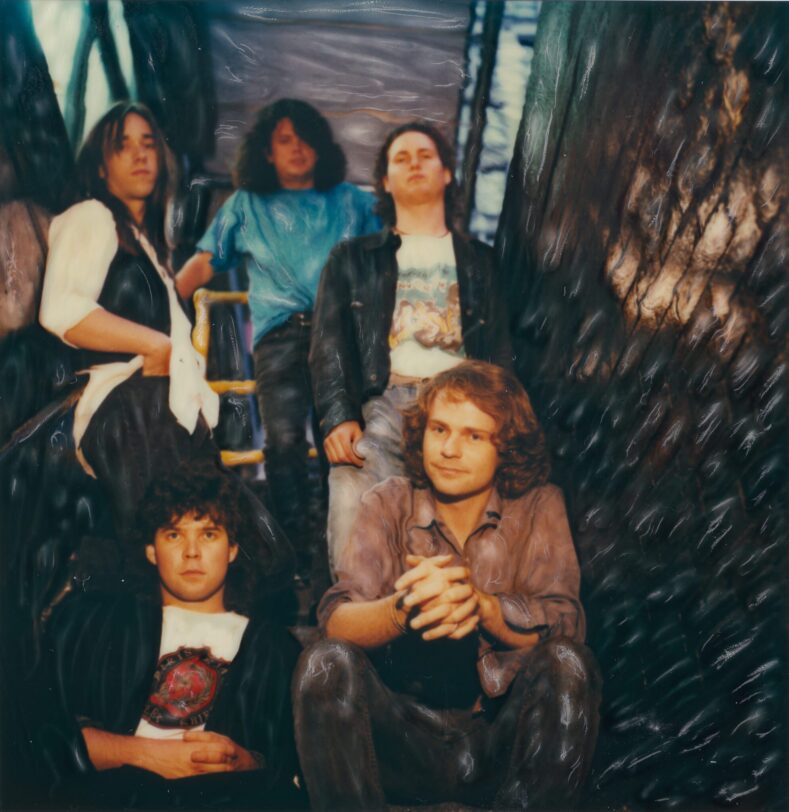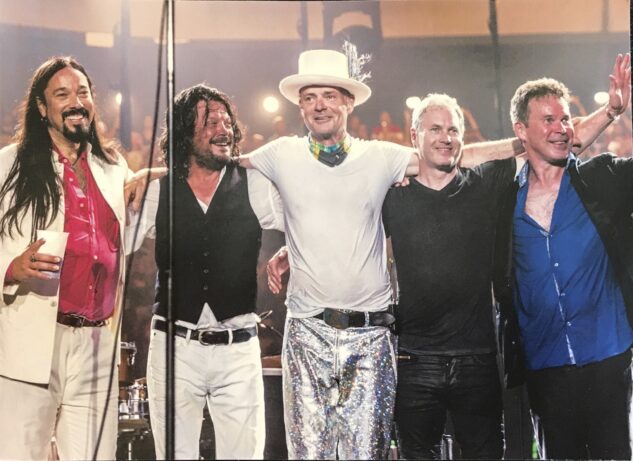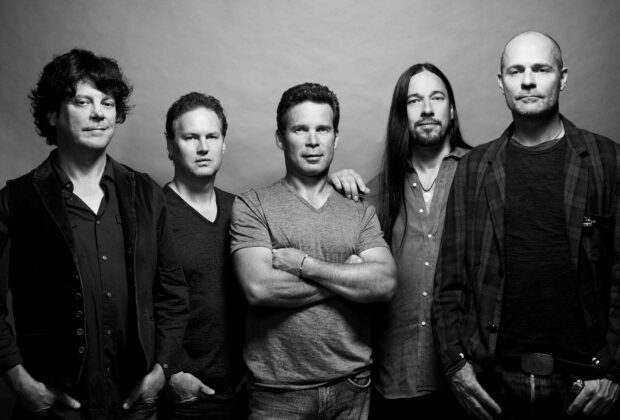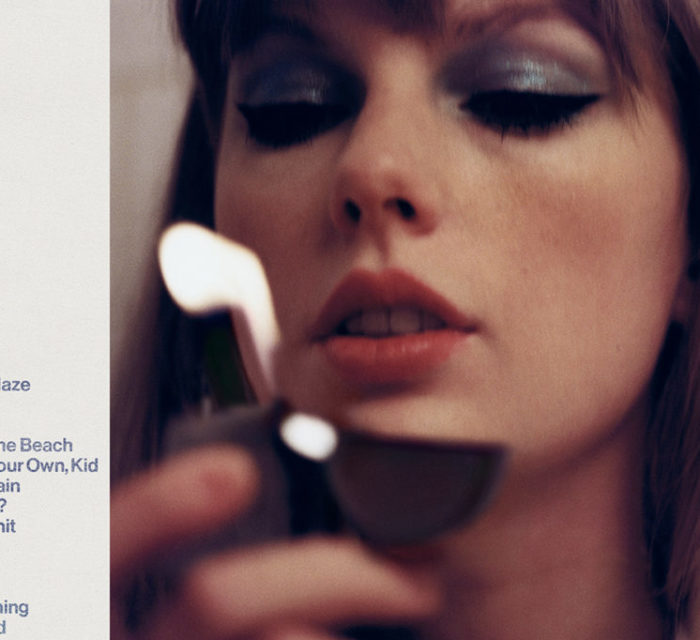Photo credit: Gordon Hawkins, David Bastedo, Michael Going
No Dress Rehearsal
Despite having sold over 12 million albums in Canada, amassing a loyal following over a 30+ year career, and selling out shows for years across Canada, the United States, and Europe, if you are not Canadian, The Tragically Hip (known lovingly as “The Hip”) could be the greatest band you’ve never heard of. Having released 15 albums from 1987 to 2021, The Hip’s multiple awards include 17 JUNOs (and 2021’s Humanitarian Award for their history of philanthropy in Canada), the SOCAN National Achievement Award (1997), induction into Canada’s Walk of Fame (2002), the Canadian Music Hall of Fame (2005), an Honorary Fellowship from the Royal Conservatory of Music (2006), and the Governor General’s National Arts Center Performing Arts Award (2008).

If the name is still not ringing any bells, a new four-part documentary series—No Dress Rehearsal—coming out on Amazon this week will help you get better acquainted. The five-piece rock phenom [Gord Downie, Bob Baker, Paul Langlois (who replaced saxophonist Davis Manning), Gord Sinclair, and Johnny Fay] have known each other since high school and, while their popularity and support have always been palpable up North (they were the fourth best-selling musical artist in Canada from 1996-2016, with 18 of their songs on the Top 150 most played on Canadian rock radio), they were catapulted back into the spotlight in 2016 after announcing lead singer Gord Downie’s brain cancer diagnosis.
Speaking with Director Mike Downie (Gord’s brother), a few things set the band apart. “You start with the music and you listen to a few of these songs. They could be from those first six records, they could be from later, but there's just something kind of distinct about them. I'm not just talking about the Canadian lyrical content, I'm talking in general. “New Orleans is Sinking,” “Courage,” “Ahead by a Century” - play some of those songs for somebody,” he says. “Once they’re interested, you would take them to a club to see them live and then they’re hooked.” Gord’s infamous stage antics and infectious energy were other-worldly. “He wasn't picking these up from other performers. These are original,” adds Mike. “You've got really good songs and this live performance. On top of that, they're singing and reaching an authentic place, which is their experience. They're not just representing themselves. They're representing something bigger. I think when you start to add all those things together, you're talking about movement, something that goes beyond the music, but the music's always there. The music comes first and last.”

The Hip also did things unapologetically on their own terms. “Their story of being five high school friends is important because we all come from somewhere and it affects who we are, how we treat people, how we interact with each other, and how we process any kind of fame or recognition,” shares Mike. In addition to humility, the band possessed a rare level of artistic integrity. While family and work ethic coming first is somewhat of a cultural dynamic, they sometimes followed their guts and turned down big opportunities to stay true to their roots. Says Mike, “They were difficult decisions, but they had a very strong belief that they all had a veto. Some of it has to do with over-exposure. Back in those days, bands talked a lot about selling out - and that was a real serious allegation if you were considered to be one of those people who had sold out (not everyone ever agreeing on what that meant). They policed themselves [and] each other. Sometimes you just got to leave some money on the table and—as Gordon would say—play the long game, because everything's a long game. I think they did that.”
Gord had a unique ability to tell stories without an element of schooling or guilt. It’s a part of the narrative, but not in a way that was smacking you over the head. He just emphasized the need to have a conversation. “All his songs are impressionistic. There’s a lot of room there for the listener to interpret. They're rarely prescriptive, and he went to great lengths in interviews after each of the records came out [to remain that way],” shares Mike. “He understood that if he was to tell them [journalists] there was a story, if he was to pull back the curtain and show them, it would reduce its ability to reach people because it limits the conversation. That’s what he was all about - creating that space to connect.” Emphasizes Mike, “Great art is completed by the audience – there’s a piece missing. It’s true – and he [Gord] understood that.”
Connecting to his body energetically came naturally to Gord. Says Mike, “I feel like he was often entering that flow state. It is very difficult to get to that place, but it allowed Gord to go on pure instinct and do all those things. The frequency, flow state he was tapping into …my goodness. None of it was planned, choreographed, and was rarely ever repeated, so every night he was like a blank sheet of paper. It wasn't a persona. It was just him.”

Mike says that Gord was a regular Joe in many ways. He was a good athlete as a hockey goalie, which helped him develop his leadership qualities, ‘be with a group but alone,’ and know how to ‘deliver in a timely way.’ He had a natural magnetism, but kept his ego in check with his family and friends to ground him, while also understanding the platform he had, and wanted to make a difference. While looking for new projects, Mike told Gord about the story of Chanie Wenjack, an Indigenous boy who ran away from a residential school in 1966 and who died from exposure at just 12 years old (something Mike heard about on the radio). Writing notes about the material while they were shopping for writers to turn the story into a film, Gord’s poetry became an album (a collaboration with Kevin Drew from Broken Social Scene), adding Jeff Lemire’s graphic novel to the mix, which was combined into an animated film (The Secret Path, https://bit.ly/3MPOhlm). “We just figured if we didn't know this story about any residential school kid in 2012, there must be millions of Canadians who don't know a story like this,” admits Mike. “With that platform and the Tragically Hip, we needed to try to tell the story. Not to Indigenous people; to non-Indigenous people, and maybe Hip fans to begin with, so that's how that whole journey started.
The album and graphic novel were complete and work had started on the animation when Gord was diagnosed. It just happened to be the 50th anniversary of Wenjack’s passing. “By the time it came out and The Hip had done that [Farewell] tour, the whole country was tuned in to what was happening to Gord Downie,” says Mike. “He makes that statement in Kingston about First Nations (he meant all Indigenous peoples) and that we have to figure out what the hell went on up there, and we're not a country until we do. The Secret Path came out two months after that tour and Canadians were ready to hear that story. There's no question why it had the impact it did. It was because Gord was in this. He was terminal, but he had the spotlight and redirected it towards this major awful history of Canada. I think that that says a lot about who he was. It's not an act. He cared about things like that, felt responsibility, and knew he could make a difference. He could make people aware of things like reconciliation.”
Since Gord’s passing in 2017, the group has been unanimous about never performing as The Hip again, saying that ‘it’s not The Hip without any [one] of them,” although there will likely be more previously recorded music to come. A concert film of the band’s last show from their farewell tour, A National Celebration, was released in late 2017 (https://amzn.to/3XKSbCx), and an EP of previously unreleased material, Saskadelphia, released in May 2021, followed by Live at the Roxy in June 2022 (from their May 1991 concert at the Roxy Theatre in West Hollywood).
The beloved group has received a street sign tribute and prominent commemorative stone for fan favorite lyrics ‘Everybody was in it for miles around’ (from “Ahead By A Century,” as selected by over 11,000 online voters) to celebrate their 13th album. A local hockey team played a theme night with Hip-inspired jerseys. CBC Radio’s The Strombo Show hosted ‘The Hip 30’ to celebrate their journey, with cover tributes by artists including Blue Rodeo, Sarah Harmer, Barenaked Ladies, Donovan Woods, Stars, Arkells, and Rheostatics - all before Gord ever became ill. In May of 2018, the Alberta Ballet premiered All of Us, a contemporary ballet with the music of the Tragically Hip (discussions for the project began back in 2016), and 2018 Winter Olympic figure skaters Tessa Virtue and Scott Moir performed a tribute set to “Long Time Running.”
Mike hopes that fans and newcomers alike will spend the four hours getting to know the band, who they were, and why they matter to so many in Canada and around the world. “What they did was really special,” he says. “They helped change the idea of what it means to be Canadian.”
Winning the People’s Choice Documentary Award at this year’s Toronto International Film Festival, The Tragically Hip: No Dress Rehearsal kicks off this Friday, September 20 on Amazon (https://amzn.to/4guh7oY), with the This Is Our Life coffee table book to follow on October 1 (https://bit.ly/3XHP5iC).
For more information about working to help build a better Canada, inspired by Gord Downie and Chanie Wenjack, visit: downiewenjack.ca.














